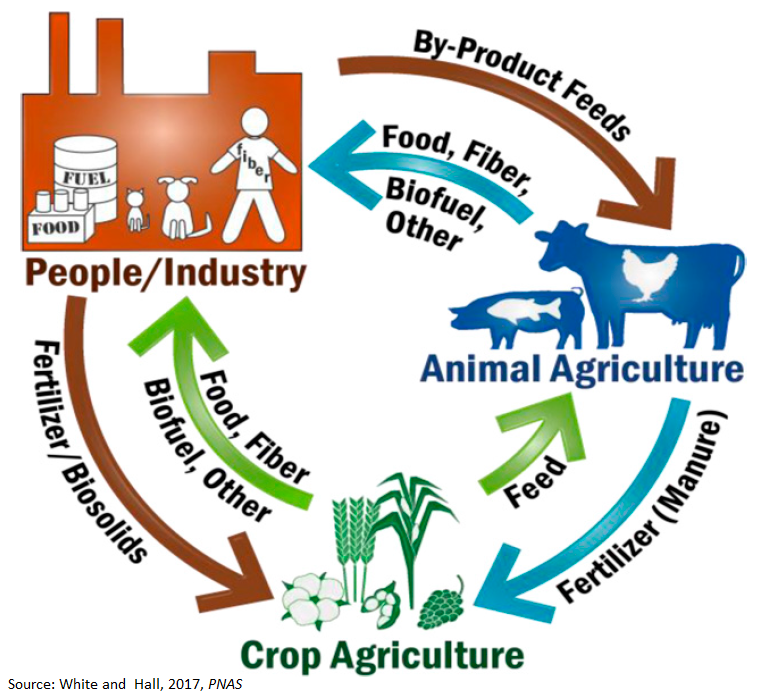
Animal Agriculture: Human Versus Planetary Health
 What if everyone became a vegan? No more animals in agriculture. In the Proceedings of the National Academy of Sciences, Robin White and Mary Beth Hall tried to answer that question. They modeled the impact of taking animals out of U.S. agricultural production – on nutrition and on the environment. What they found was a bit of a trade-off. The planet gains and human nutrition takes a hit.
What if everyone became a vegan? No more animals in agriculture. In the Proceedings of the National Academy of Sciences, Robin White and Mary Beth Hall tried to answer that question. They modeled the impact of taking animals out of U.S. agricultural production – on nutrition and on the environment. What they found was a bit of a trade-off. The planet gains and human nutrition takes a hit.
A Win for the Planet
Animal agriculture adds quite a load of greenhouse gases to the environment. Agriculture accounts for roughly a quarter of greenhouse gas. Animal agriculture produces about half of that.
So it’s no surprise. Eliminating animal products from the food supply would cut our greenhouse gases. Emissions from agriculture would drop 28% – from 623 to 446 million tons per year. You might have expected a bigger drop. But eliminating animals means plants must take up some of the slack. That means more fertilizer and other things that add back some emissions.
Falling Short on Human Nutrition
Unfortunately, there’s a cost. Even with best efforts, U.S. agriculture could not fill the nutrition gap left by eliminating animal agriculture. In White and Hall’s model, the system could not supply enough calcium, vitamin A, B12, and some fatty acids. White explains:
With carefully balanced rations, you can meet all of your nutrient requirements with a vegetarian diet. But the types of foods that seem to do that, we don’t currently produce in sufficient quantities to make it a sustainable diet for the entire population.
Big shifts in the food supply often look good in theory. But the details are a bit more complex. Reducing our dependence on animals for food might help the planet. However, this modeling shows that it might also bump into some limits. Reality has a way of tempering our aspirations.
Click here for the study, here for more from Science, and here for more from the Sacramento Bee.
A View of Earth and Its Moon, photograph © junaidrao / flickr
Subscribe by email to follow the accumulating evidence and observations that shape our view of health, obesity, and policy.
November 17, 2017

November 17, 2017 at 11:42 am, David Brown said:
Actually, the planet needs more herbivores to stay green and prevent wildfires. https://www.ted.com/talks/allan_savory_how_to_green_the_world_s_deserts_and_reverse_climate_change